What data recovery tools to buy if you want to start a data recovery business?
Free video data recovery training on how to recover lost data from different hard drives?
Where to buy head and platter replacement tools at good prices?
Data recover case studies step by step guide
I want to attend professional data recovery training courses
Recently we get a lot of questions about data recovery from flash SSDs. Here we gather some ideas and situations for your reference.
Usually, SSD data recovery is much more time consuming and much more expensive, more complicated than RAID data recovery, any SSD over 8GB are charged on a case by case basis so far. Anyone with an encrypted SSD should be warned to backup, if the controller gets damaged, it’s most likely only the encrypted data can be recovered. If you move into larger SSDs, a 64GB PCIe SSD unit could take a professional technician over a week of nonstop work.
SSDs use special kind of semiconductor devices with erasable, writable cells. When compared to traditional hard drive it is found that these solid drives are less prone to the condition of failure as there are no moving parts, there is less that can go wrong mechanically as for example there is no head so its crashing problem is the matter of past. Additionally damages due to heat or heavy impact on hard drive are no more in action with the use of solid state drives use. Most flash SSDs use complicated controller technology to extend the reliability and speed of storage. The architecture inside a high performance SSD is more complicated than that in most RAID systems. The algorithms which map addresses to physical media locations vary from manufacturer to manufacturer – and in many cases – like the formula for making Coke or Pepsi – the details are closely guarded commercial secrets.
It is a very common fact that each coin has its counterpart. So in spite of having no mechanical parts in SSD, these drives are also not 100% secure from failure. The fact is that these hard drives are more susceptible to certain other effects like abrupt power loss, magnetic fields and electric/static charges compared to normal Hard Disk Drives (which store the data inside a Faraday cage). Apart from this certain other causes like human error like accidental deletion of files or deletion of file after formatting can be other some minor factors too of data loss from solid state drive. So what to do in the condition when your solid state hard drive has faced such a condition and the ultimate loss of data?
SSD Data Recovery can be broadly defined as 4 types:
* Easily recoverable. This includes devices which have internal support to facilitate data recovery – designed into the controller architecture. Although such products are in the design stage – they are not yet widely available. This type of SSD could be as economic to recover as a current notebook hard drive.
* Recoverable at high cost. This is the case for nearly all flash SSDs currently shipping.
* Non recoverable (unlucky). This is one step beyond the category above. Most flash SSDs with internal encryption would not be economic to recover – if the internal translation tables were corrupted. This includes many new notebook SSDs – and will come as an unwelcome surprise to their owners should they be unlucky enough to need data recovery services.
* Non recoverable (intrinsic). These are SSDs which have been specifically designed to thwart any prospects for data recovery. In these SSDs – data destruction circuits are part of the product design – and you pay more for this feature.
One fact we need to see is that the biggest traditional customers of flash SSDs have been the military or industrial users who didn’t want enemies / competitors stealing their secrets.
Erstwhile flash SSD manufacturers like Adtron, BiTMICRO and STEC specialised in having on-board disk sanitization of various forms to make sure that that the data is never recovered by the wrong people.
So far in data recovery market, it’s easy to find professional hard drive data recovery tools, NAND flash chips data extractor but hard to find data recovery tools for flash SSDs. So if you are using flash SSDs, do please remember a regular data backup of your important data to avoid permanent data loss.
Shall we find out some super heroes and super SSD data recovery tools? You can try and let us know!
Data recovery Salon welcomes your comments and share with us your ideas, suggestions and experience. Data recovery salon is dedicated in sharing the most useful data recovery information with our users and only if you are good at data recovery or related knowledge, please kindly drop us an email and we will publish your article here. We need to make data recovery Salon to be the most professional and free data recovery E-book online.

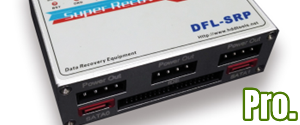
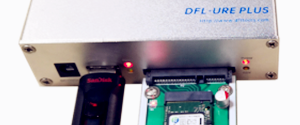
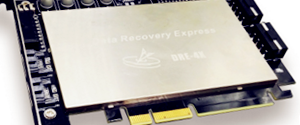

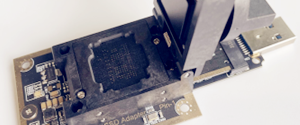
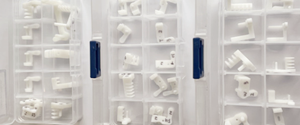
5 Comments
I have an SSD from a Japanese Sony with a 256ssd. It seems to require a different power and connection than the American SSD docks. Does anyone have any info on this?
nice info, thanks for share …
The biggest challenge in recovering data from an SSD is encryption. Although all hard drive companies offer encryption, it’s used by a minority of users, but SSDs are almost always encrypted. Outside of security issues, encryption helps SSDs balance data distribution. DriveSavers can recover data from SSDs due to physical failure, trauma or firmware corruption, but that’s only half the problem. If they can’t get past the encryption, there’s little they can do to help. Fortunately controller manufacturers are working in conjunction with DriveSavers on failure analysis engineering since it’s in everyone’s best interest to make data recovery feasible.
DriveSavers has already been recovering data from SSDs for three years and although they don’t state success rates, they have recovered quite a bit of data. Chris tells me that SSDs have only achieved market saturation of two percent to date, but expects that to increase to fifteen percent by 2015 as more computer manufacturers offer them and as prices continue to drop. When disaster occurs DriveSavers is there to help, with pricing based on capacity. But according to Chris, and everyone else for that matter, the best advice is to back up. It’s always better to be proactive than to need to rely on a reactive service like DriveSavers.
[…] the way data is written, changed, and retrieved from these devices, and they must ensure that the SSD controller has appropriate data integrity protection techniques in […]
← Older posts
Corsair 64 GB Performance Series SSD SATA II Solid State Drive CMFSSD-64GBG2D
Posted on February 24, 2011 by Harddisk Ssd
* Perfect upgrade to Compliment Windows 7 or any Netbook or Laptop and it is great for Gamers who want more speed out of their systems
* Compatible ? The Extreme Series uses the proven Indilinx Barefoot controller, found on SSDs installed in tens of thousands of systems worldwide
* Stutter-free ? The sophisticated Samsung controller combined with onboard cache ensures smooth performance, unlike that of cheaper SSDs
* 2 Year Warranty Backed by Corsair ? A respected name with a passion for great service and support
* Maximum sequential read 220 MB/s Maximum sequential write 120 MB/s
Product Description
The ideal ultra-performance storage solution – Replacing your hard disk drive with the Corsair P64 SSD will revolutionize your computing experience. Games launch quicker, your computer starts faster, multiple applications run much smoother, all while running cool and silent. Corsair’s P64 SSD is the optimum SSD for your mobile or desktop computing needs. Its 220 MB/s read speed and 120 MB/s write speed provide outstanding performance, while the ultra-large 64 GB dri… More >>
Corsair 64 GB Performance Series SSD SATA II Solid State Drive CMFSSD-64GBG2D
Posted in harddisk ssd | Tagged CMFSSD64GBG2D, Corsair, Drive, Performance, SATA, Series, Solid, State | Leave a comment
OCZ Technology Vertex 2 Series 90 GB SATA II 3.5-Inch Solid State Drive OCZSSD3-2VTX90G
Posted on February 23, 2011 by Harddisk Ssd
* NAND Flash Components: Multi-Level Cell (SLC) NAND Flash Memory, Interface: SATA II 3.0Gbp/s, Form Factor: 3.5-inch form factor
* Life Expectancy: 2 million hours Mean Time Before Failure (MTBF), Reliability: ECC: 27 bytes of redundancy per 512 bytes data, up to twelve 9-bit symbols correctable
* Operating Temperature: 0C – 70C, Storage Temperature: -45C – 85C, Shock Resistance: 1500G, Certifications: RoHS, CE, FCC
* Max Read: up to 285 MB/s, Max Write: up to 275 MB/s, Sustained Write: up to 250 MB/s, 4k Random Write (Aligned): 50,000 IOPS, Seek time: 0.1 ms
* Power Consumption: Active 2Watts Idle:0.5Watts, Performance Optimization: TRIM (requires OS support), OS Compatability: Windows XP 32/64 bit, Windows Vista 32/64 bit, Windows 7 32/64 bit, Linux, Power Requirements: Standard SATA Power Connector
Product Description
OCZ Vertex 2 SATA II 3.5-inch Solid State Drives deliver the same industry-leading performance as the 2.5-inch edition in a larger, lower cost per gigabyte form factor to easily integrate into desktop applications without the need to install additional hardware. Designed to excel in both sequential and random read/write speeds up to 50,000 4KB random write IOPS, the 3.5-inch Vertex 2 maximizes productivity when using as a primary storage or boot drive, minimizing pr… More >>
OCZ Technology Vertex 2 Series 90 GB SATA II 3.5-Inch Solid State Drive OCZSSD3-2VTX90G
Posted in harddisk ssd | Tagged 3.5Inch, Drive, OCZSSD32VTX90G, SATA, Series, Solid, State, Technology, Vertex | Leave a comment
Iomega 64 GB SuperSpeed USB 3.0/USB2.0 External SSD Flash Drive 35141
Posted on February 23, 2011 by Harddisk Ssd
* Fast – Up to 10 times the speed of USB 2.0; transfer speeds up to 5 Gbits/s; Backward compatible to USB 2.0
* Mobile – Compact, portable storage, Fast USB 3.0 interface available with no external power supply required
* Rugged – Perfect for travel environments, the Iomega Drop Guard Xtreme II feature helps to protect the drive from drops up to 10 feet!
* Secure – 256-bit hardware encryption:
* 3 Year Limited Warranty with Product Registration
* Iomega Protectio Suite software included (via download) with antivirus and backup
Product Description
Future-proof your digital storage with the new Iomega SSD Flash Drive! With write speeds up to twice as fast as 7200rpm SATA hard drives, the Iomega SSD Flash Drive is the latest technology for computer users who demand the highest performance from their digital storage. All Iomega USB 3.0 drives are backward compatible to USB 2.0 using the same cable. This solid state drive has moving parts to allow for fast application loading, top transfer speeds for HD video, gr… More >>
Iomega 64 GB SuperSpeed USB 3.0/USB2.0 External SSD Flash Drive 35141
Posted in harddisk ssd | Tagged 3.0/USB2.0, 35141, Drive, External, Flash, Iomega, SuperSpeed | Leave a comment
AMP 32GB SaberTooth S4 70mm SATA Mini PCIe SSD for Asus Eee PC
Posted on February 22, 2011 by Harddisk Ssd
* 32GB MLC NAND Flash SATA Mini PCIe SSD
* Up to 130MB/sec Read, 50MB/sec Write speeds
* Compatible with Asus S101, 900, 900A, 901 and 1000 EeePCs
* Dimensions: 2.7 x 1.3 inches (70 x 32 mm)
* ECC, Wear Leveling, bad bit management features included
Product Description
SaberToothTM SSDs are custom designed for netbook PC upgrades. The SaberTooth S4 uses the Jmicron JMF602B controller and major brand MLC flash to achieve blistering fast sequential read and 4KB random read speeds. This is an excellent way to ugrade the performance and expand storage capacity in SATA based netbooks including Asus S101, 900, 900A, 901 and 1000 EeePCs. It delivers 2X to 5X faster transfer speeds than the default SSD so you can enjoy lightning fast boot… More >>
AMP 32GB SaberTooth S4 70mm SATA Mini PCIe SSD for Asus Eee PC
Posted in harddisk ssd | Tagged 32GB, 70mm, Asus, Mini, PCIe, SaberTooth, SATA | Leave a comment
OCZ Technology 240 GB RevoDrive X2 Series PCI-Express x4 Solid State Drive OCZSSDPX-1RVDX0240
Very, very, very x1024 time consuming but for cerain file types, pci smart recovery works well – it’ll take about a week for a standard ssd drive though